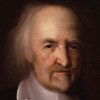“ The pleasure we desire to display to others is a pleasure lost; we neither enjoy it ourselves, nor do others enjoy it. ”
Jean-Jacques Rousseau, Emile, or On Education (1762). copy citation
| Author | Jean-Jacques Rousseau |
|---|---|
| Source | Emile, or On Education |
| Topic | pleasure desire |
| Date | 1762 |
| Language | English |
| Reference | |
| Note | Translated by Barbara Foxley |
| Weblink | http://www.gutenberg.org/cache/epub/5427/pg5427-images.html |
Context
“For my own part I know no more terrible fate than that of a pretty woman in Paris, unless it is that of the pretty manikin who devotes himself to her, who becomes idle and effeminate like her, and so deprives himself twice over of his manhood, while he prides himself on his successes and for their sake endures the longest and dullest days which human being ever put up with.
Proprieties, fashions, customs which depend on luxury and breeding, confine the course of life within the limits of the most miserable uniformity. The pleasure we desire to display to others is a pleasure lost; we neither enjoy it ourselves, nor do others enjoy it. [Footnote: Two ladies of fashion, who wished to seem to be enjoying themselves greatly, decided never to go to bed before five o'clock in the morning. In the depths of winter their servants spent the night in the street waiting for them, and with great difficulty kept themselves from freezing.”
source


